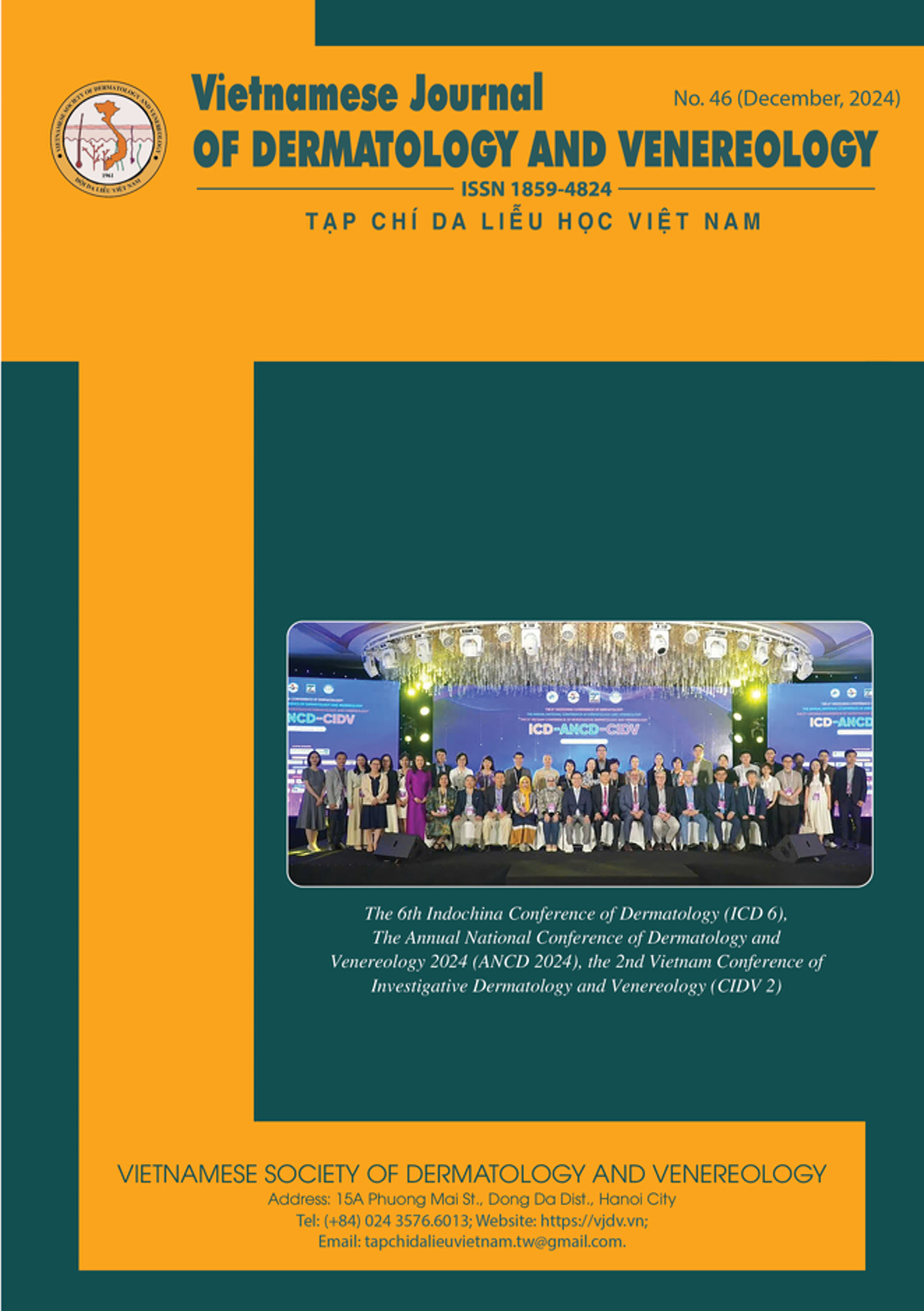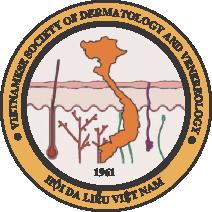ASSOCIATION OF ANTI-KU AUTOANTIBODIES AND SOME ORGAN DAMAGE OF AUTOIMMUNE CONNECTIVE TISSUE DISEASES
DOI:
https://doi.org/10.56320/tcdlhvn.46.197Keywords:
autoimmune connective tissue diseases, anti Ku, skin lesion, muscle damage, pulmonary arterial hypertensionAbstract
Objective: To assess the association between anti-Ku antibodies and organ damage in common autoimmune connective tissue diseases.
Materials and Method: This was a descriptive, cross-sectional, retrospective, and prospective study involving 215 patients diagnosed with autoimmune connective tissue diseases, including systemic sclerosis, systemic lupus erythematosus, dermatomyositis, and overlap syndromes of ACTDs, treated at the National Hospital of Dermatology and Venereology from January 2021 to December 2022. Patients were tested for the presence of anti-Ku antibodies using the ANA 23 profile test kit.
Result: Out of the 215 patients in the study, 60 (27.9%) tested positive for anti-Ku antibodies, predominantly at a weak level (1+). Among these, 43.3% had systemic lupus erythematosus, 10% had systemic sclerosis, 18.3% had dermatomyositis, and 28.3% had overlap syndromes of ACTDs. The group with positive anti-Ku antibodies exhibited a higher incidence of butterfly rash and mouth ulcers. The positive anti-Ku antibody group had a significantly higher rate of elevated muscle enzymes (53.3%) compared to the negative group (29.7%) (p = 0.001). Additionally, the incidence of pulmonary arterial hypertension was 39.5%, with the positive anti-Ku antibody group having a higher rate (61.7%) than the negative group (31%) (p < 0.05). High-resolution computed tomography revealed interstitial lung lesions in 37.2% of the patients, with no significant difference between the positive and negative groups.
Conclusion: Anti-Ku antibodies are relatively prevalent in patients with autoimmune connective tissue diseases, particularly in systemic lupus erythematosus and overlap syndromes of ACTDs. Patients with positive anti-Ku antibodies are at a higher risk of developing acute skin lesions in systemic lupus erythematosus, muscle damage with elevated muscle enzymes, and pulmonary arterial hypertension compared to those without these antibodies.
Received 14 August 2023
Revised 13 September 2023
Accepted 03 November 2023





